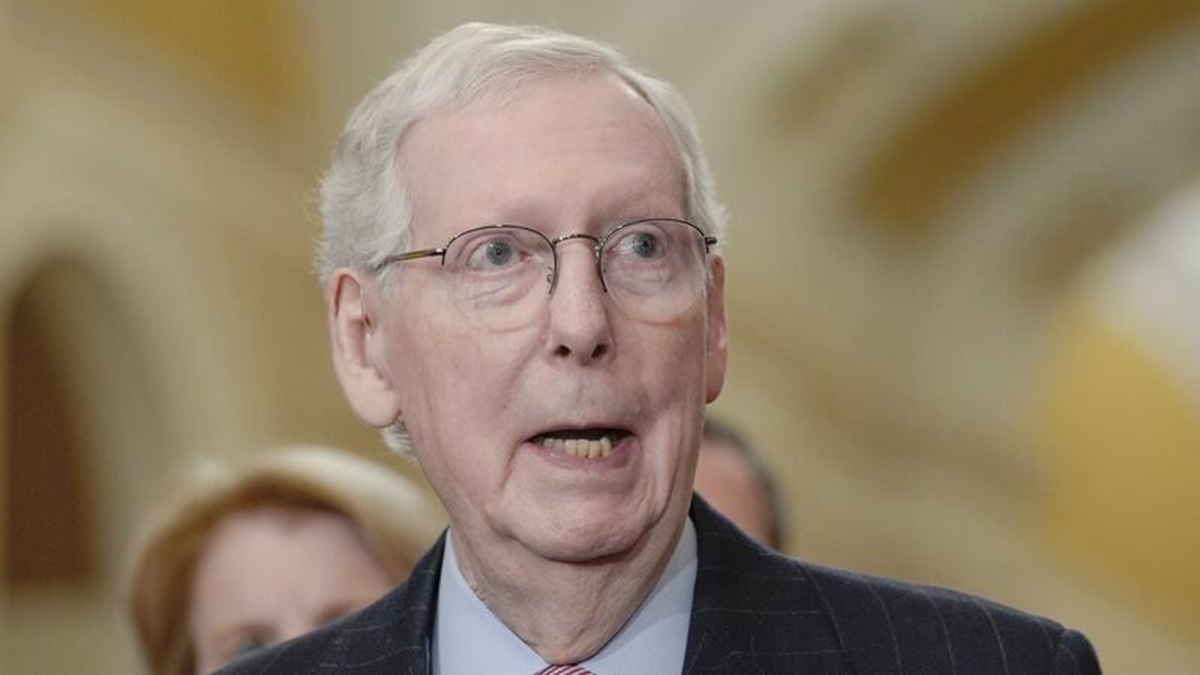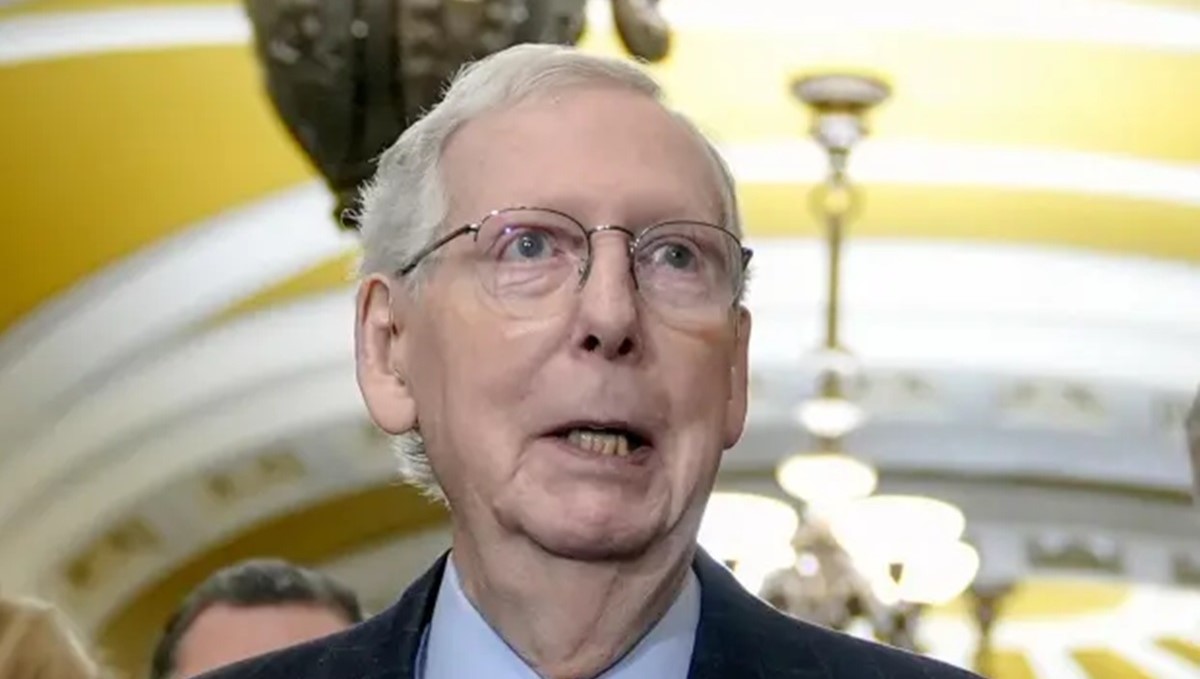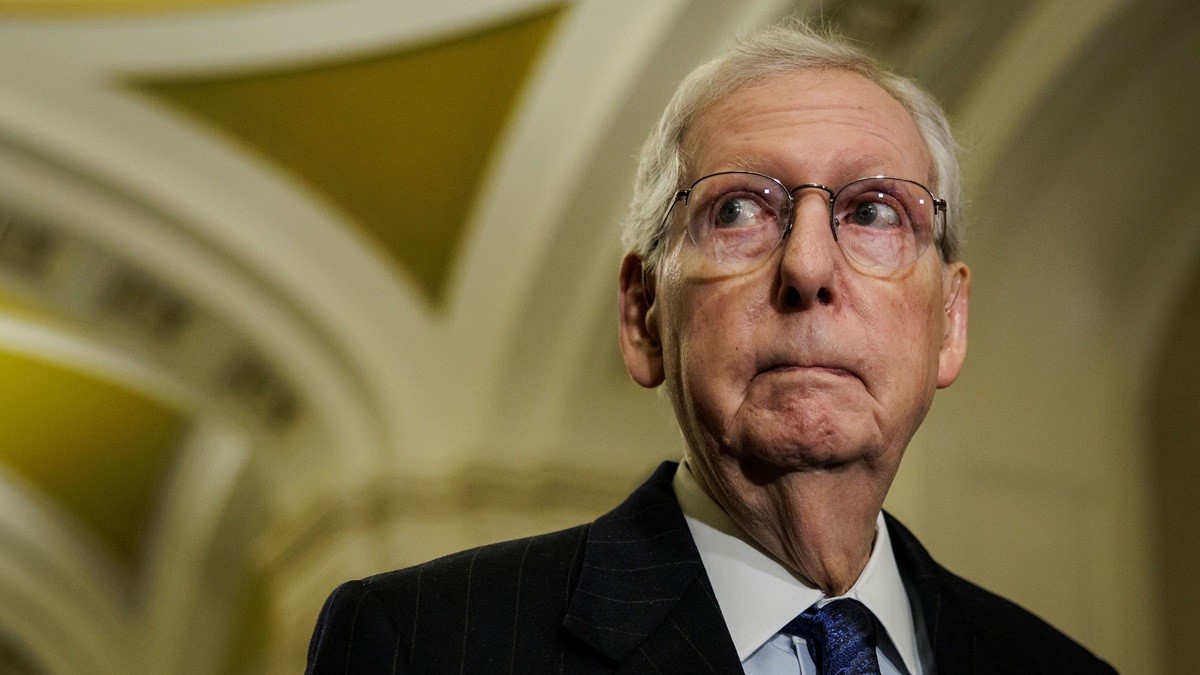[ad_1]
Mitch McConnell, a renowned American politician, has announced his retirement, so his fans are curious to know more about his successor and news about his successor. Find out what’s new.
Mitch McConnell’s extensive political career includes serving as Senate Majority Leader from 2015 to 2021 and as Senate Majority Leader from 2003 to 2007.
In addition, McConnell has led the Senate Republican Conference since 2007 and holds the title of longest-serving party leader in the Senate.
Additionally, McConnell, who was elected to the U.S. Senate in 1984, is the second Kentuckian to assume the role of party leader in the Senate.
Read more: Who are Amy Ross Lopez’s parents? Family and ethnicity
Is Rand Paul the successor to Mitch McConnell?
Mitch McConnell has announced his decision to step down as Senate Republican leader in November.
This announcement created a political ripple effect that set the stage for a subsequent battle over the succession within the Republican Senate Conference.
While Rand Paul is a notable Republican senator, he is not McConnell’s immediate successor, and the leadership vacuum has opened the door for competition between several prominent GOP figures.
The succession process within the Senate Republican Conference is complicated and involves a combination of negotiations and elections.

Since McConnell’s successor is not automatically chosen, Republican senators will engage in discussions and intraparty deliberations to build support in their favor.
In addition, the dynamics of this process are shaped by individual political skill, ideological orientation and the ability to attract the support of other senators.
The race to succeed McConnell is emblematic of the broader ideological and strategic shifts within the Republican Party.
Additionally, candidates running for the position may represent different thoughts and perspectives within the party, making the outcome crucial to the party’s future direction.
The internal negotiations and elections reflect the democratic nature of the party leadership selection in the Senate and underline the importance of consensus building and political maneuvering.
Although Rand Paul is a major figure in the Republican Party, he must navigate this complicated web of party politics to secure the coveted leadership role.
The succession process is a litmus test of the Republican Party’s unity and ability to adapt to the evolving political landscape.
Ultimately, Republican senators will engage in a delicate tug-of-war of political strategy in the coming months.
Mitch McConnell replacement news
Following Mitch McConnell’s announcement that he would step down as Senate minority leader, potential successors are taking center stage, although no official offers have been made yet.
Notable figures in the mix who have the potential to become his successors include:
John Thune is from South Dakota. Senator Thune is currently the Senate Minority Whip and has a close relationship with McConnell.
Thune has been in office since 2005 and is known for his moderate stance within the Republican Party, providing a potential bridge between different perspectives.

Similarly, John Cornyn, who represents Texas, has a long history of working with McConnell, having previously served as Senate majority and minority leader.
With his Senate tenure dating back to 2002, Cornyn is considered a formidable player who brings experience and familiarity with Senate dynamics.
Also, Wyoming Senator John Barrasso currently holds a key position in Republican leadership as chairman of the Republican Conference.
Barrasso’s support of former President Donald Trump could play a role in succession considerations.
Over and beyond, Rick Scott of Florida, Senator Scott has challenged McConnell for leadership in the past.
Despite past controversies, Scott remains a vocal supporter of new leadership in the Senate.
His presence adds a dynamic element to the race for successor and underscores the call for change within the Republican ranks.
As the Senate anticipates a leadership transition, these potential successors represent diverse backgrounds and perspectives within the Republican Party.
The race for successor is likely to be a fascinating interplay of experiences, alliances and different visions for the party’s future.
Also read: Justin Ely has died: cause of death and obituary.
[ad_2]
